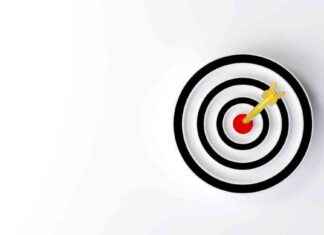Since opening in mid-June, documenta fifteen in Kassel has been overshadowed by accusations of anti-Semitism. In order to work up the scandal, the show will be accompanied by seven scientists in the coming months. “The aim is to ensure that the documenta continues to have its unique position as an exhibition for contemporary art in Kassel in the future,” said the exhibition’s partners, the city of Kassel and the state of Hesse, on Monday.
“The scientific analysis of the works of art at the documentafifteen, with references to possible anti-Semitic (image) language, should take place during the current exhibition,” announced the shareholders. The main work of the experts will extend beyond the exhibition period of documenta fifteen, since in-depth scientific studies can also be initiated.
Anti-Semitism allegations against the documenta have been circulating for months. In January, the first voices were raised accusing the Indonesian curator collective Ruangrupa and some invited artists of being close to the anti-Israeli boycott movement BDS. Shortly after the opening of the exhibition in mid-June, a banner with anti-Jewish motifs was discovered and taken down. Last week, new works appeared that caused sharp criticism.
In view of the incidents, the supervisory board around the chairman, Kassel’s mayor Christian Geselle (SPD), and his deputy, Hesse’s art minister Angela Dorn (Greens), decided in mid-July on various measures to deal with the situation, including the appointment of specialist support.
According to the announcement, the committee now includes scientists “with outstanding scientific expertise in the fields of anti-Semitism, perspectives from global contexts and postcolonialism, art and constitutional law”.
They are therefore responsible for the first inventory of the processes, structures and receptions around the documenta and should give recommendations for the processing and discuss which aspects require an in-depth scientific analysis. “In addition, you will be advised on the analysis of possible further anti-Semitic imagery and language as well as works already identified as anti-Semitic,” the statement said.
The consultation results and positions are to be presented to the Supervisory Board and the shareholders. They would make these available to documenta gGmbH and the curators and enter into a dialogue about them. “Artistic freedom is preserved, curatorial responsibility is and remains the explicit task of Ruangrupa’s artistic management,” the shareholders explained.
“We expect that indications of possible anti-Semitic imagery and the promotion of Israel-related anti-Semitism will be investigated, taking into account the freedom of art, which is protected by fundamental rights,” emphasized Geselle. The reconstruction and processing of the anti-Semitic incidents with the support of a specialist committee are “essential” and should also regain the trust that has been lost in the past few weeks, said Dorn, who proposed the composition of the expert council together with the city of Kassel’s culture department head, Susanne Völker Has.
The committee will be chaired by Nicole Deitelhoff, executive board member of the Leibniz Institute Hessian Foundation for Peace and Conflict Research (PRIF) and executive spokeswoman for the Research Institute for Social Cohesion (FGZ). According to the shareholders, in addition to the selected scientists, other experts can also be consulted, including Meron Mendel. The head of the Anne Frank educational institution initially became involved as an external advisor to the documenta after the first find of anti-Semitic imagery, but later withdrew due to the slow processing of the scandal.






